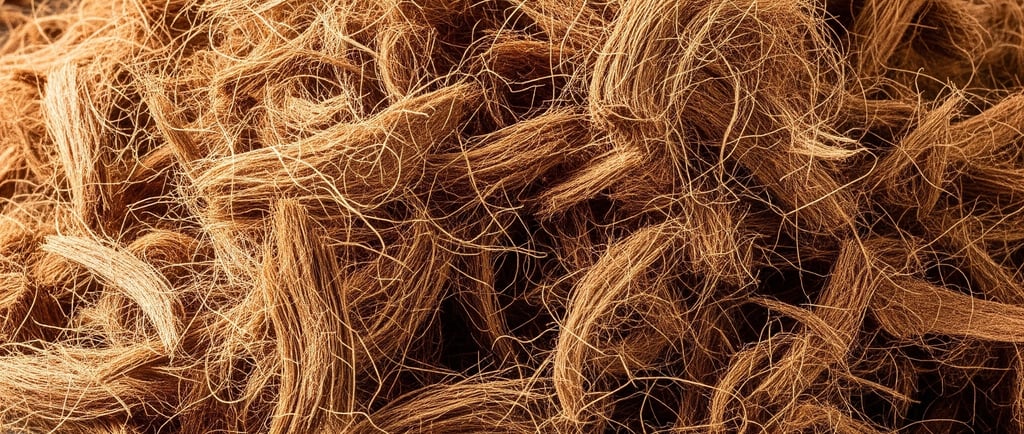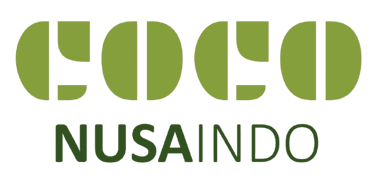🧵 Natural vs Synthetic: Why Cocofiber Is the Smarter Choice
coconusaindo
8/1/20252 min read


🏭 The Hidden Cost of Synthetic Fibers
Synthetic materials like polyester, nylon, and acrylic have long dominated industries such as automotive, furniture, and construction due to their durability and low cost. However, these benefits come at a serious environmental price. Derived from petrochemicals, synthetic fibers are non-biodegradable, energy-intensive to produce, and a major contributor to microplastic pollution.
In a world urgently seeking sustainable solutions, cocofiber—derived from coconut husk waste—emerges as a powerful and eco-friendly alternative.
📚 What the Research Says
Research conducted by Sarjani, Mawardi, and Adlie (2023) in Aceh Tamiang, Indonesia, highlights the untapped potential of coconut husk as a sustainable resource. Through simple processing techniques, the husk is transformed into cocofiber, which is then used to produce items such as car seat linings, floor mats, mattresses, and garden products.
This study not only empowered local communities but also proved that cocofiber offers excellent durability, elasticity, and biodegradability. It presents a clear pathway to reduce waste while boosting local economic development.
🌍 Why Cocofiber Is Gaining Global Attention
As awareness around green living increases, countries in Europe, North America, and Asia are beginning to shift toward natural materials like cocofiber. It provides better insulation, shock absorption, and long-term usability, all without damaging the planet.
Unlike synthetic fibers that take hundreds of years to decompose, cocofiber naturally breaks down over time. It also requires far less energy and no toxic chemicals during production, making it an ideal choice for eco-conscious businesses and consumers.
🤝 Coco Nusa Indo: Your Bridge to Sustainable Materials
At Coco Nusa Indo, we connect verified Indonesian producers with global buyers looking for premium-grade cocofiber. Whether you’re sourcing for automotive interiors, eco-friendly furniture, or gardening supplies, we ensure:
High-quality, export-ready materials
Fair pricing and transparent sourcing
Reliable and efficient shipping logistics
As a neutral broker, our role is to make sure both parties—local producers and global buyers—benefit from each transaction.
💬 Conclusion
Cocofiber is no longer just a byproduct of coconut processing—it’s a smart, sustainable alternative to synthetic fibers. It supports environmental goals, strengthens local economies, and meets the growing demand for biodegradable materials in various industries.
📌 Reference
Sarjani, T. M., Mawardi, A. L., & Adlie, T. A. (2023). Pengolahan Limbah Sabut Kelapa sebagai Media Tanam Cocopeat dan Cocofiber Kecamatan Seruway–Aceh Tamiang. Martabe: Jurnal Pengabdian Kepada Masyarakat, 6(11).
🚀 Ready to Source Natural Cocofiber?
Looking to move away from synthetic materials?
🔗 Get in touch today at www.coconusaindo.com and let us help you find the best cocopeat straight from the source.
🌴 Empowering small producers. Delivering global quality.
Our social media
Connecting local producers with global markets.
Contact us
Email Us
Coconusaindo © 2025. All rights reserved.
